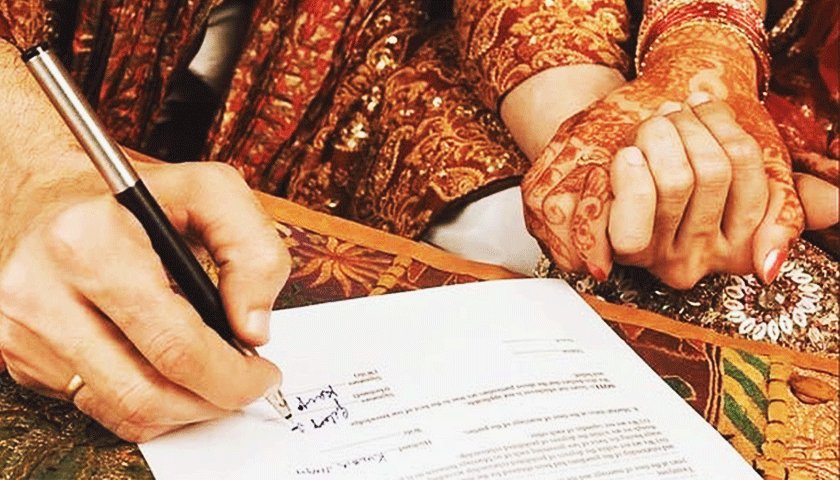Role Of Advocate In Court Marriage In Chandigarh
Role Of Advocate In Court Marriage In Chandigarh – An advocate plays a very important role in court marriage as he is responsible for providing legal guidance and representation to couples during the whole process of marriage. Some of the specific ways an advocate can help in a court marriage include: procuring the marriage certificate, filing the petition for securing the life and liberty of the involved parties in the court, and much more. This is where the Role Of Advocate In Court Marriage In Chandigarh comes in.
Doing Court marriage may seem simple as well as flexible to some people, yet there are various things one must keep in mind in order to make sure they are not going to face any negative consequences regarding their Marriage. It is less socially acceptable in certain communities and thus may act as a source of the relations becoming less friendly. Being a quicker process as compared to the traditional modes of Marriage, the popularity of Court Marriage is constantly;y increasing a lot. Thus it becomes important to know about the Role Of an Advocate In Court Marriage In Chandigarh.
Indian Court Marriage Law: Special Marriage Act
When two people fall in love, things like religion or caste don’t act as a problem in their feelings. But once they make the decision to wed, it becomes a social issue in front of many. And things like religion, caste, and nationality enter the frame making it somewhat illegal in many manners. This is where the role of a Role Of Advocate In Court Marriage In Chandigarh comes in.
Court Marriages in India are governed by The Special Marriage Act, of 1954 governs judicial weddings in India. Marriages between people of different religions or between Indian citizens and foreign nationals must be registered under the Act in order to make it legalized.
Step-by-Step Guide to the Procedure of Court Marriage
There is a whole procedure that needs to be followed in order to make sure that the Court Marriage has been done in a proper manner in front of the eyes of the law. It’s significant to note that in order for a judicial marriage to be recognized by the Special Marriage Act, certain requirements must be met wholly. For instance, neither party should have a spouse who is still alive at the time of marriage, nor should they be in a relationship that is to the extent forbidden. The following steps are part of the judicial marriage process under the Special Marriage Act:
- Notice of intending marriage: The couple must inform the district’s marriage officer of their intention to be together if at least one of them has lived there for at least 30 days prior to the notice date.
- Notice publication: Any objections to the marriage may be voiced during the notice’s 30-day period of publication so that the later steps can be taken properly.
- Getting A NOC Certificate: The marriage officer will issue the couple a certificate of no objection if no objections are voiced within the 30-day period of publication.
- Marriage Formalisation: After receiving the certificate of no objection, the couple can officially become husband and wife by signing a register in front of three witnesses.
List of Required Documents for a Court Marriage
Depending on the particular district or state where the marriage is being registered, the list of necessary documents for a judicial marriage in India under the Special Marriage Act, of 1954 may differ somewhat. A legal union between two people that is celebrated in a court of law is referred to as a court marriage. Certain papers must be provided to the marriage registrar in order for a judicial marriage to be registered. But mainly the following documents are needed:
- Age Proof: The couple will need to provide proof of age, such as a birth certificate, school leaving certificate, or passport.
- Residence Proof: The couple will need to provide proof of residence, such as a ration card, voter ID card, or utility bill.
- Identity Proof: The couple will need to provide proof of identity, such as a passport, PAN card, or voter ID card.
- Affidavit: The couple will need to provide an affidavit stating that they are not related to each other within the prohibited degree of relationship and that they are not already married.
- Passport Size Photographs: The couple will need to provide passport-size photographs of themselves and three witnesses.
- NOC from the parents in case of parties are minors.
- Divorce Decree/Death certificate in case one of the parties is divorced/widow.
Amit Gupta: The Leading Court Marriage Lawyer in Chandigarh
Hiring a Legal expert for court marriage is very crucial as it helps you to look after that all kinds of affairs are being carried on in a proper manner. There may be various situations where one may need the help of a leading Court Marriage Lawyer in Chandigarh as court marriage is a legality-based task that needs the guidance of an expert to be carried on. Have a look at how Amit Gupta is the leading Court Marriage Advocate In Chandigarh and how he can aid you to complete court marriage properly.
- We offer free legal advice for everyone that comes to us.
- A valid court marriage certificate is issued for all.
- We offer the marriage certificate on the same day of marriage.
- All of our services are done in a very fast and prompt manner.
- The best possible charges are charged by us and none of the costs are hidden in any manner.
Contact Details
Name: Amit Gupta Advocate
Address: Booth No. 2459-C, Sector 22-C, Himalayan Marg, Chandigarh – 160022
Phone: +91-7888700485







